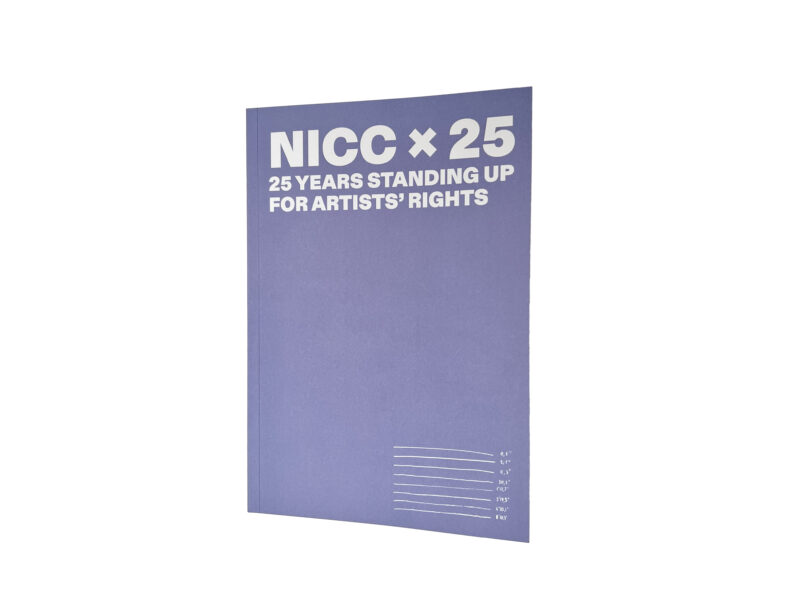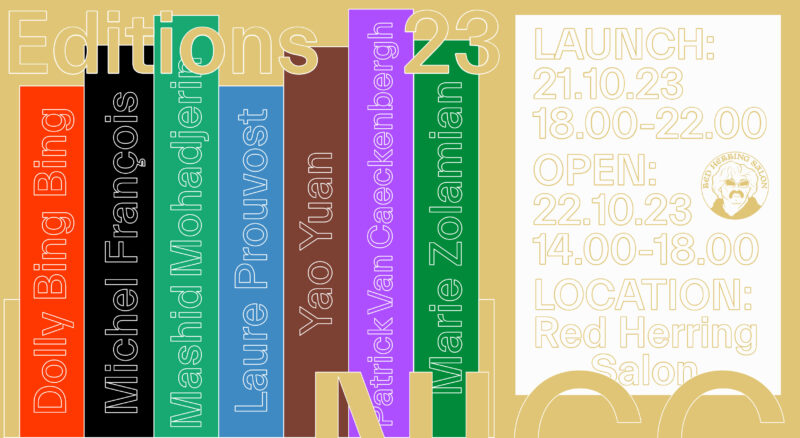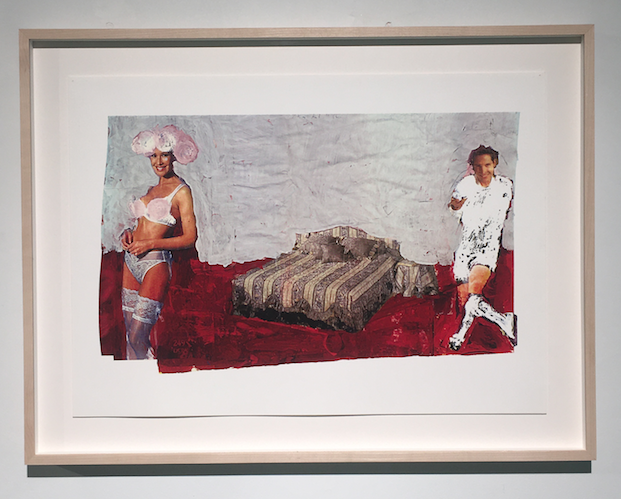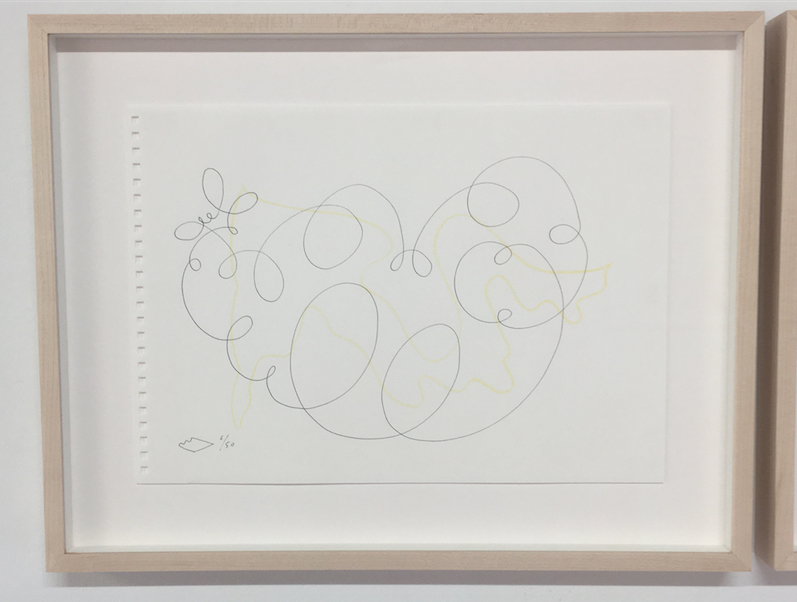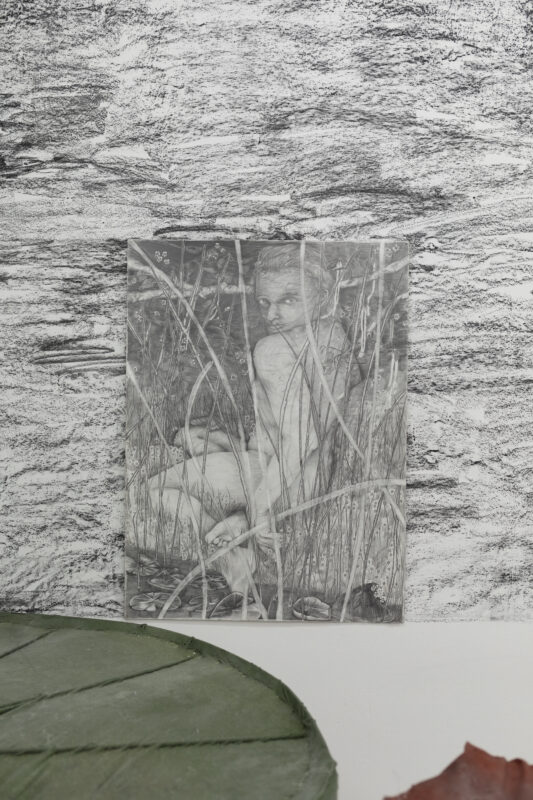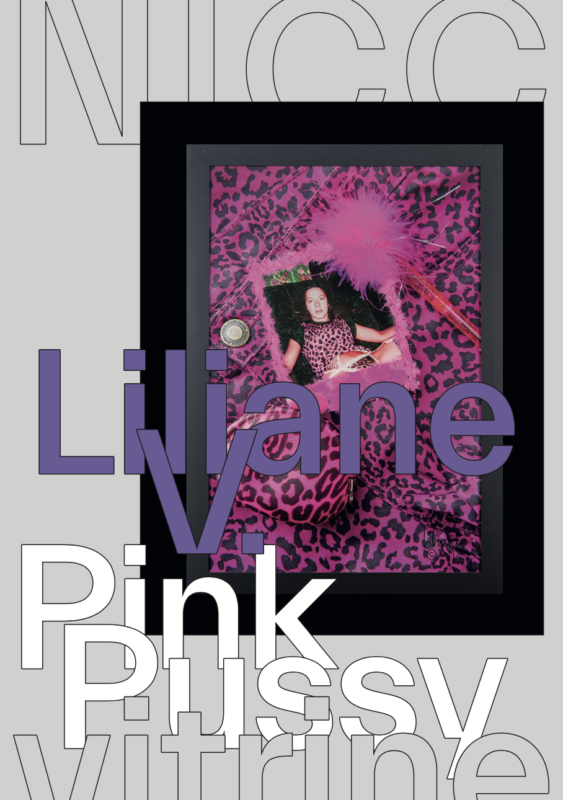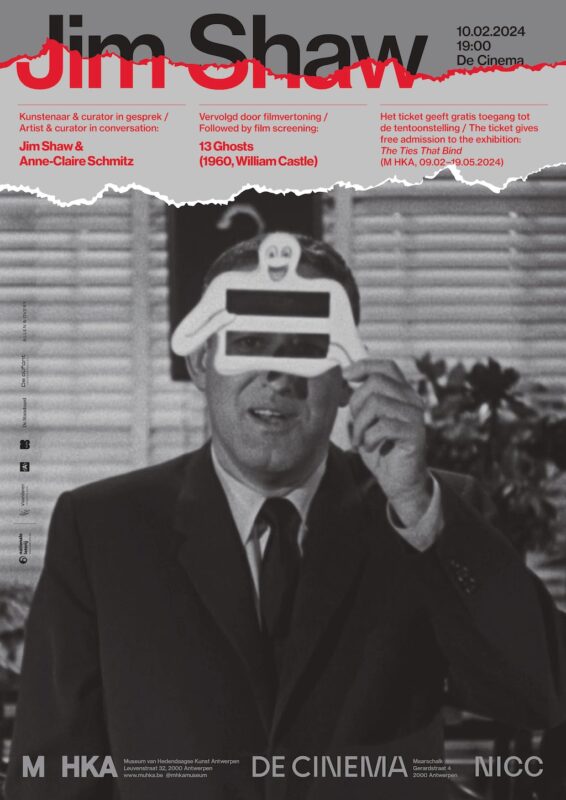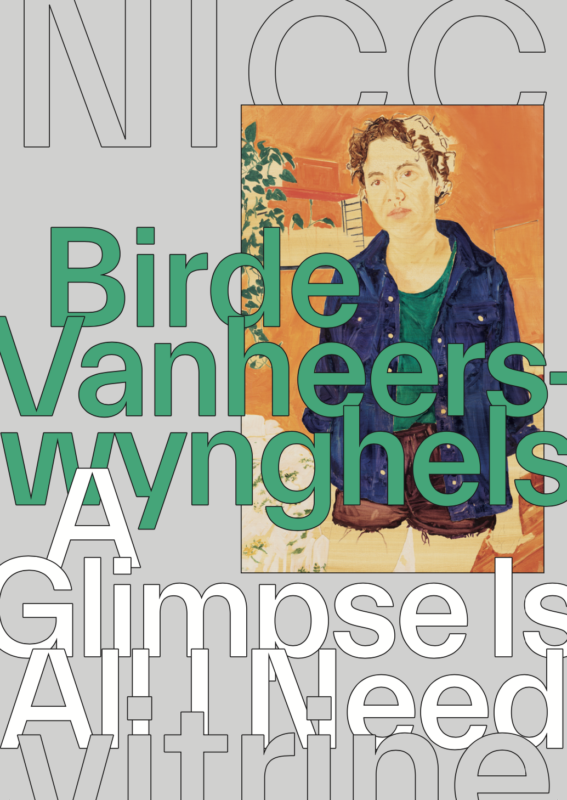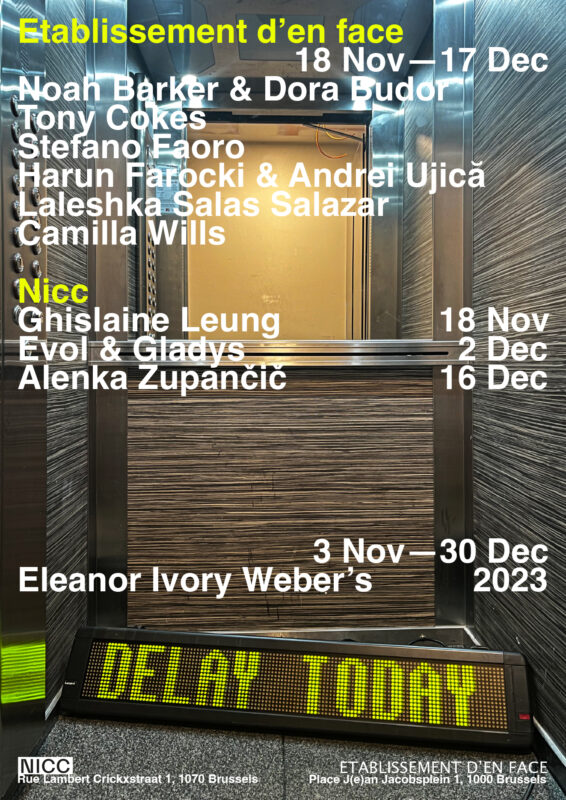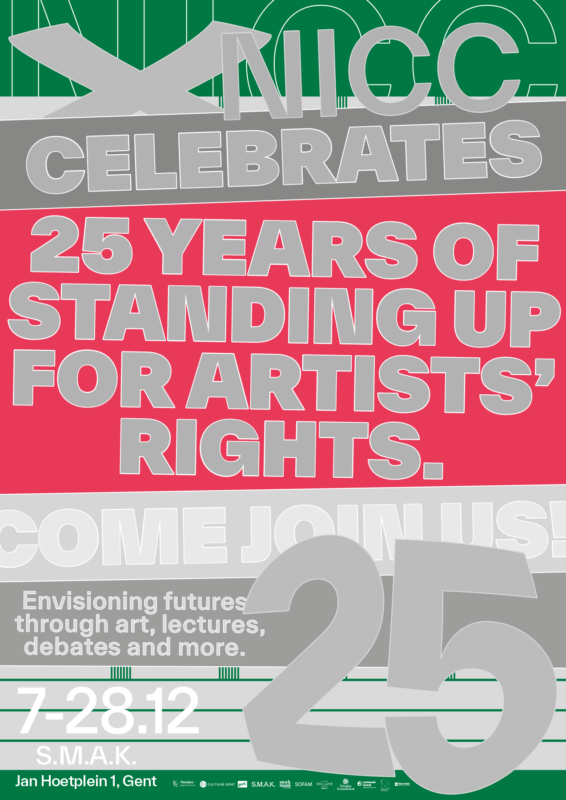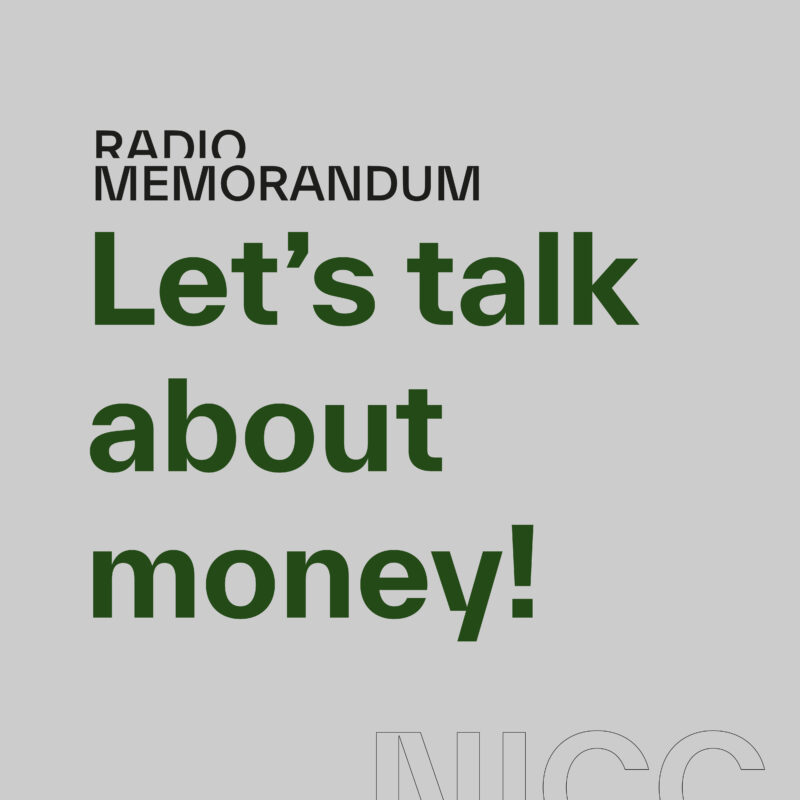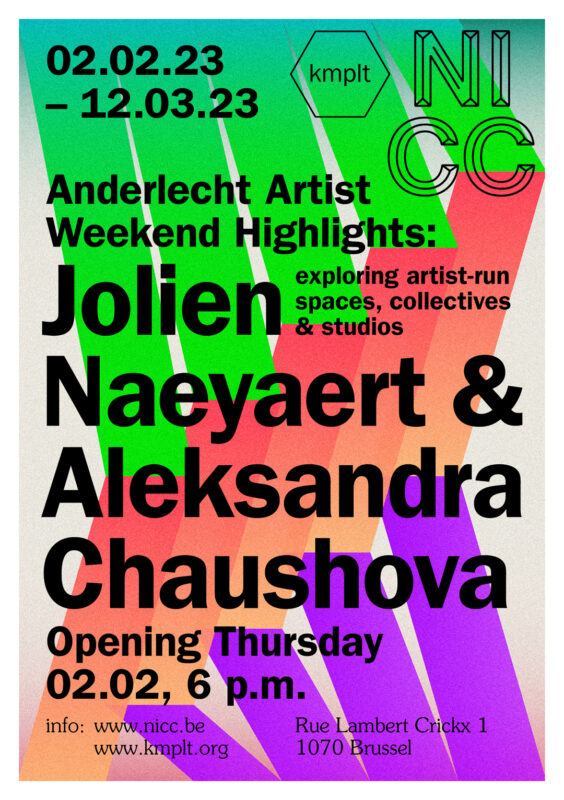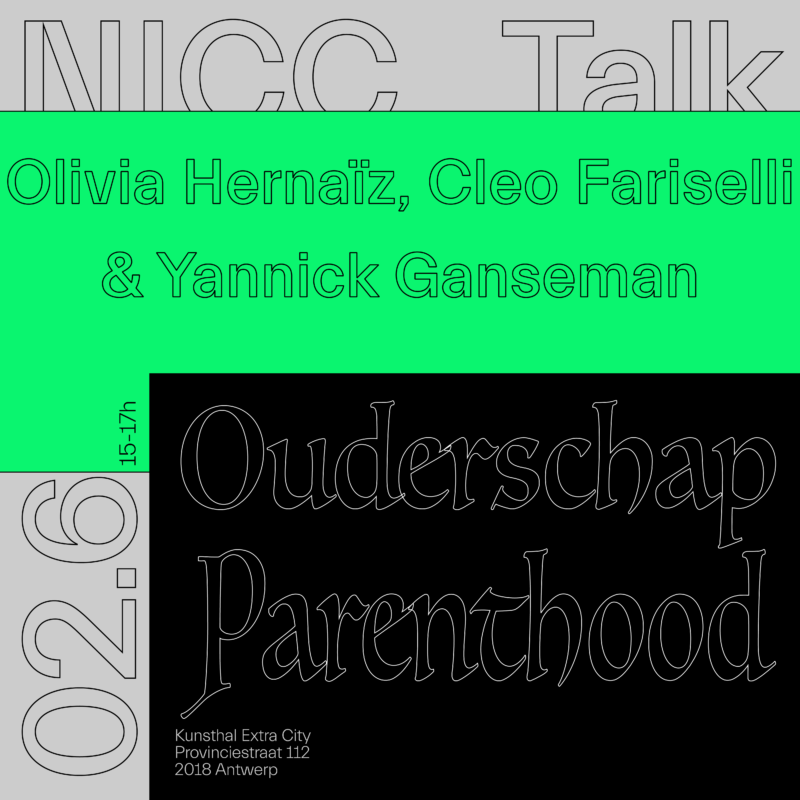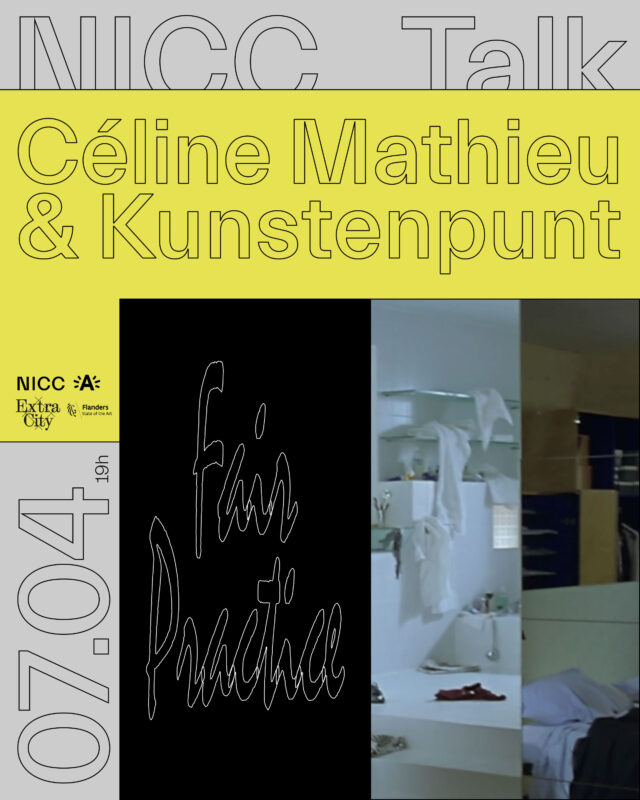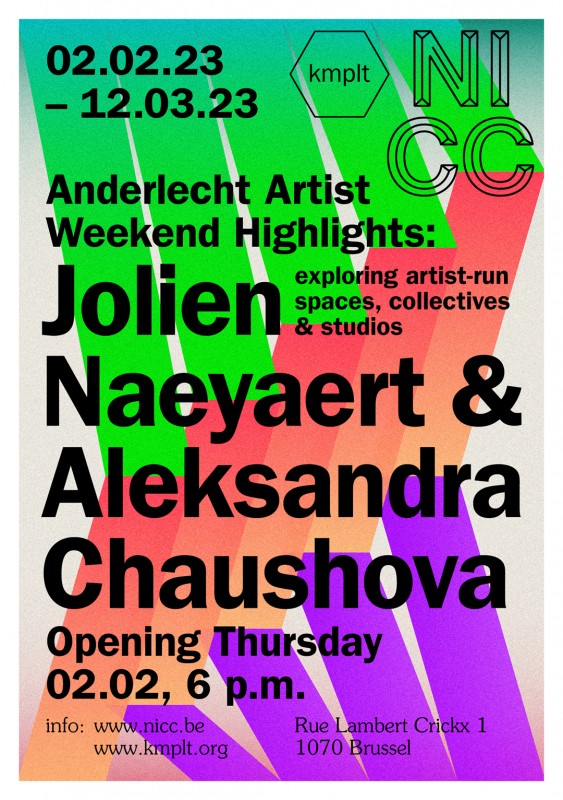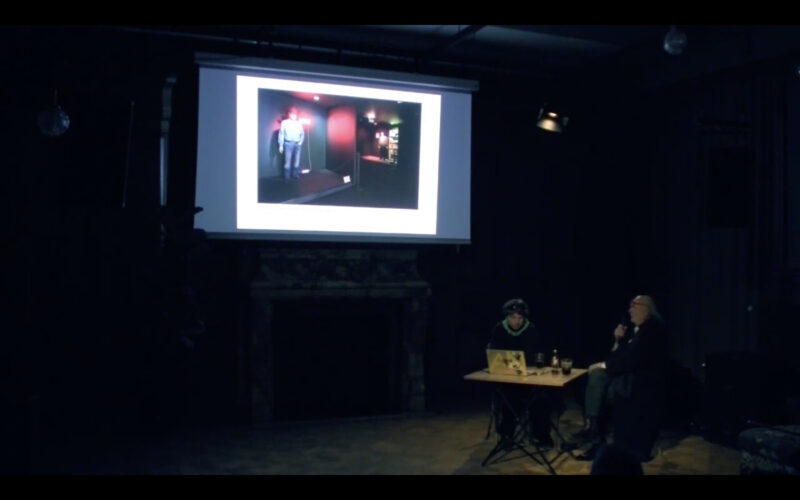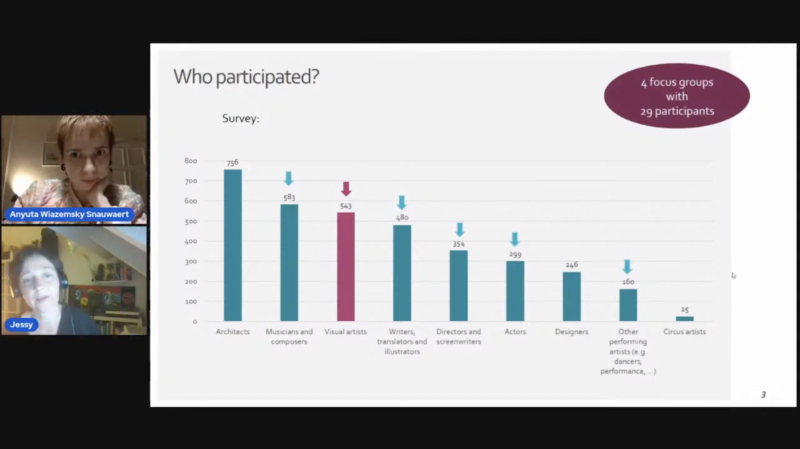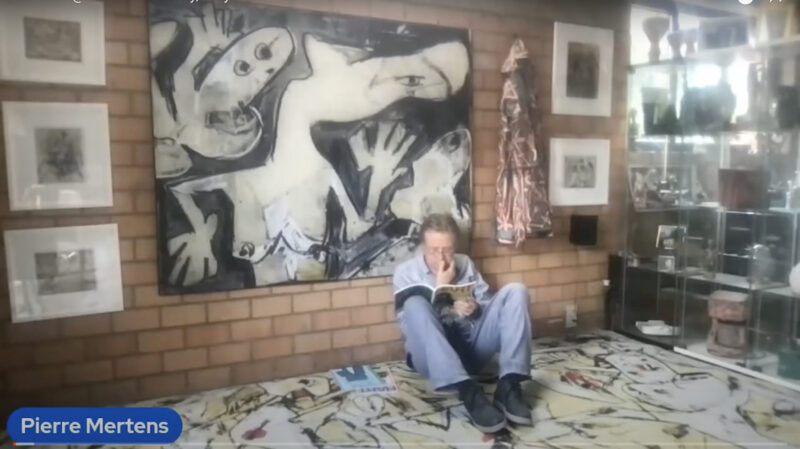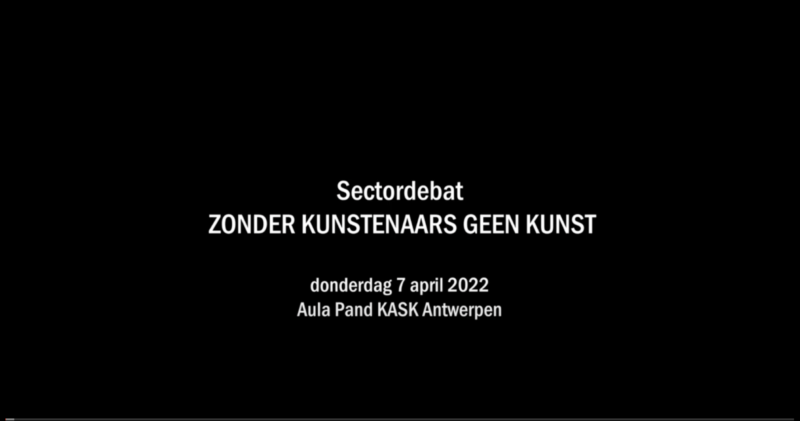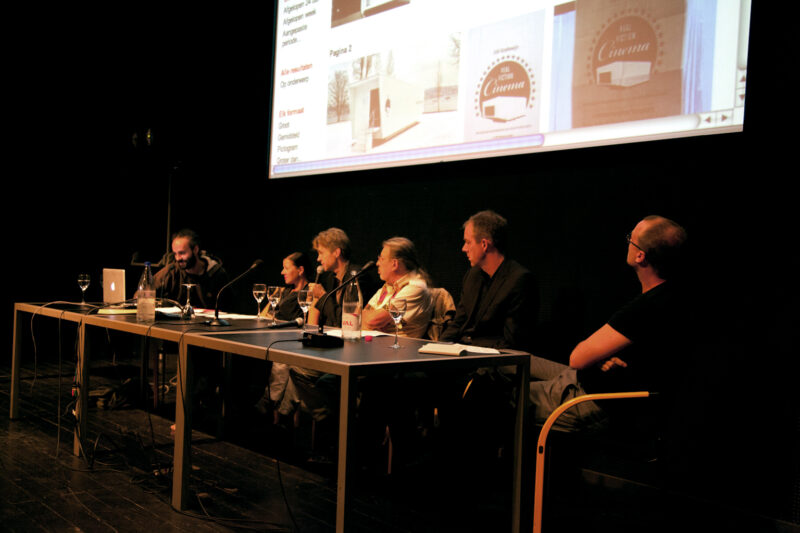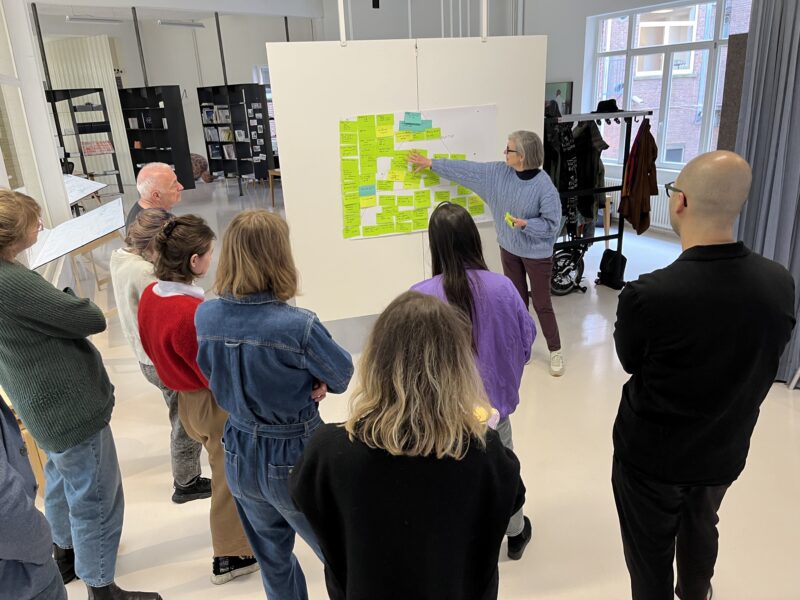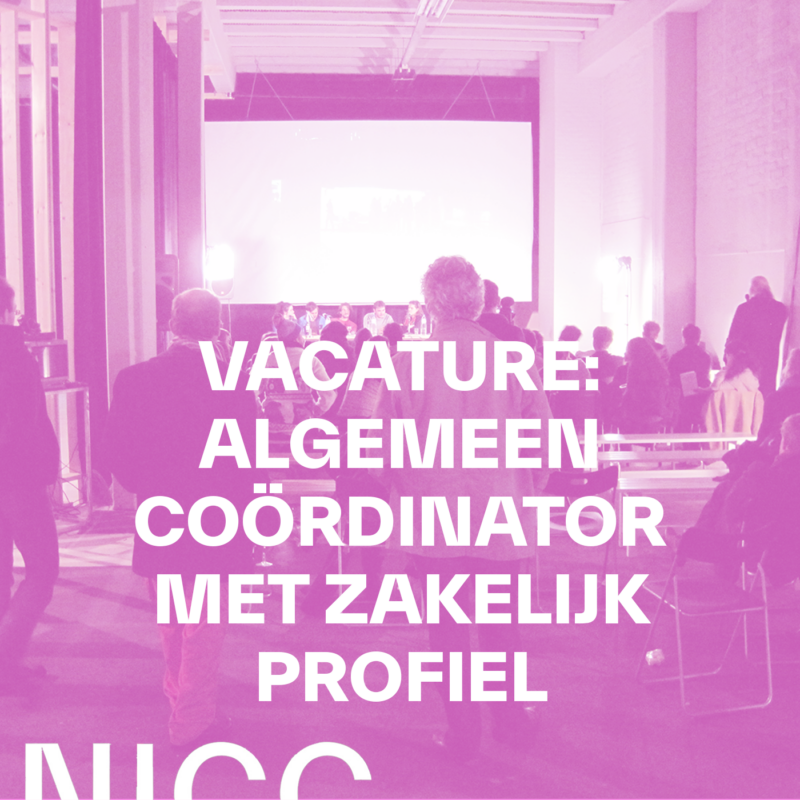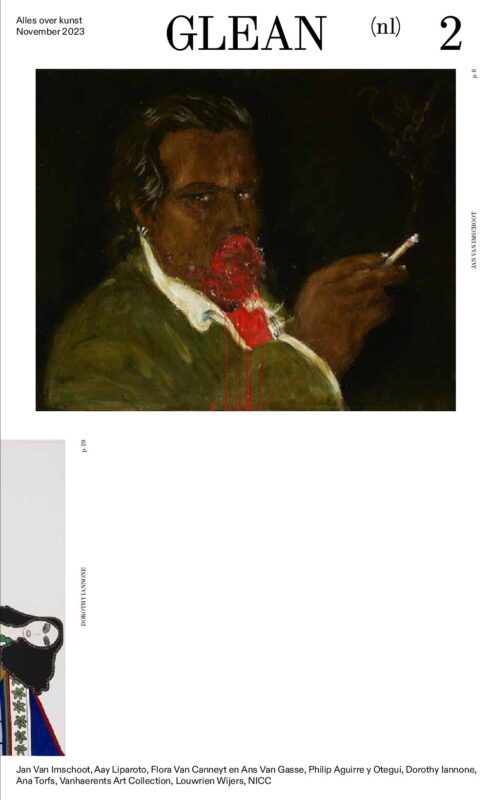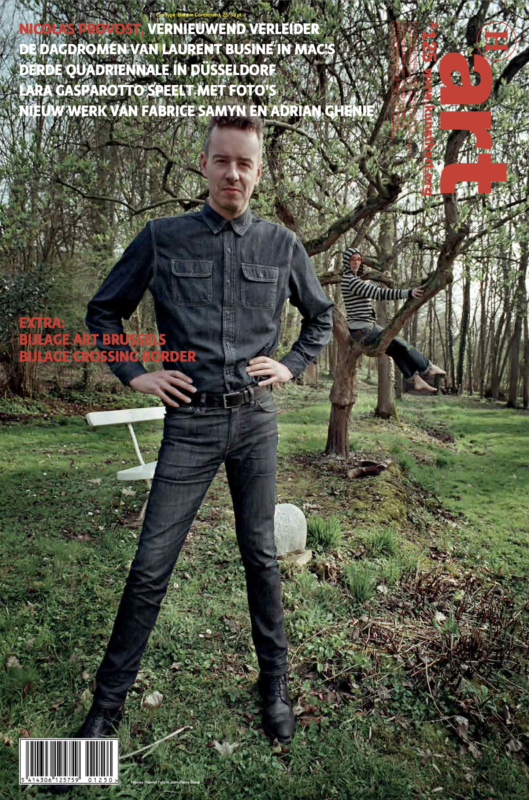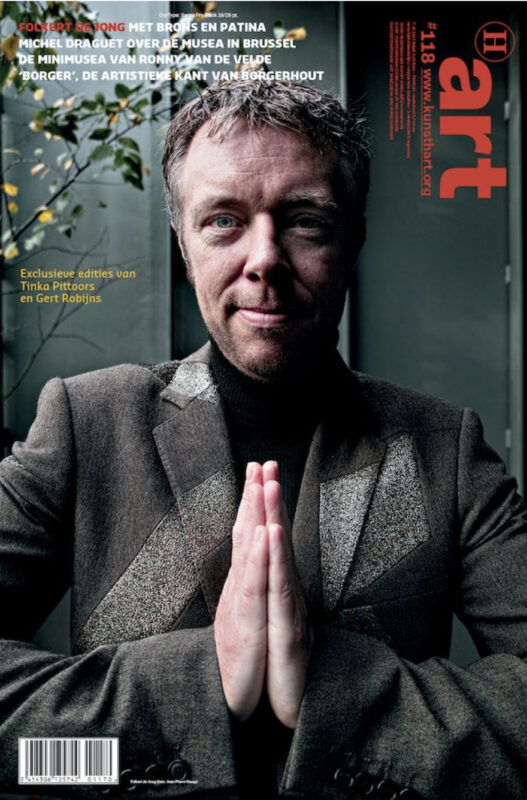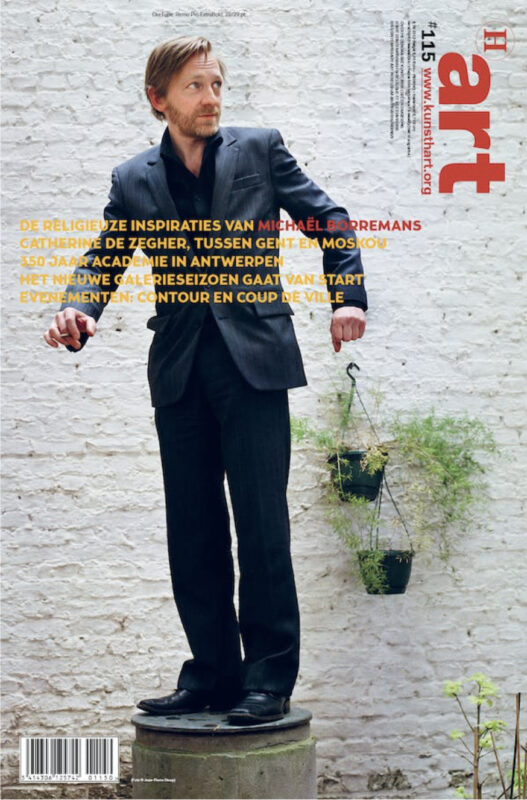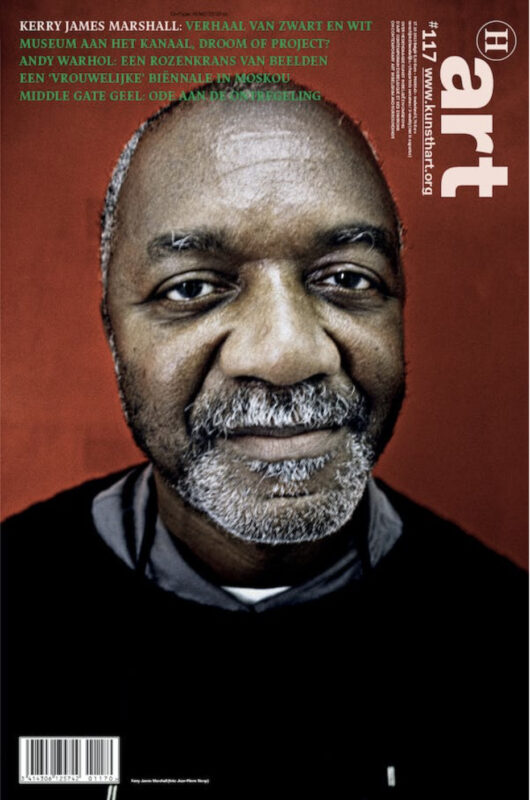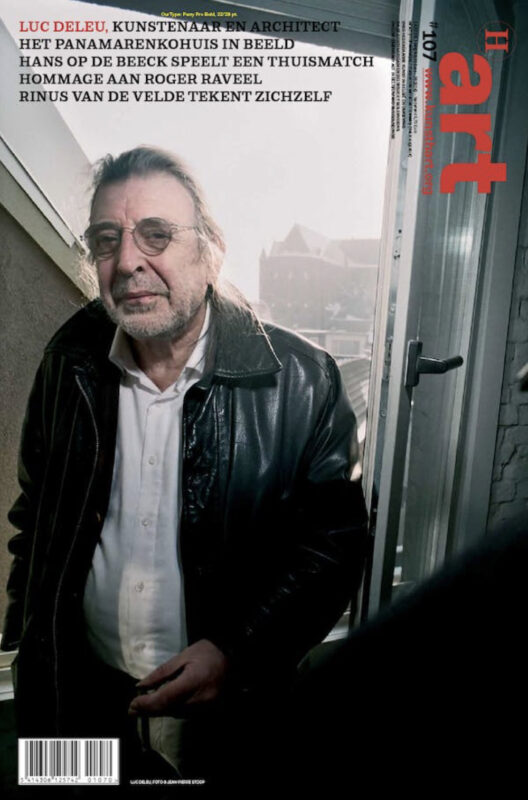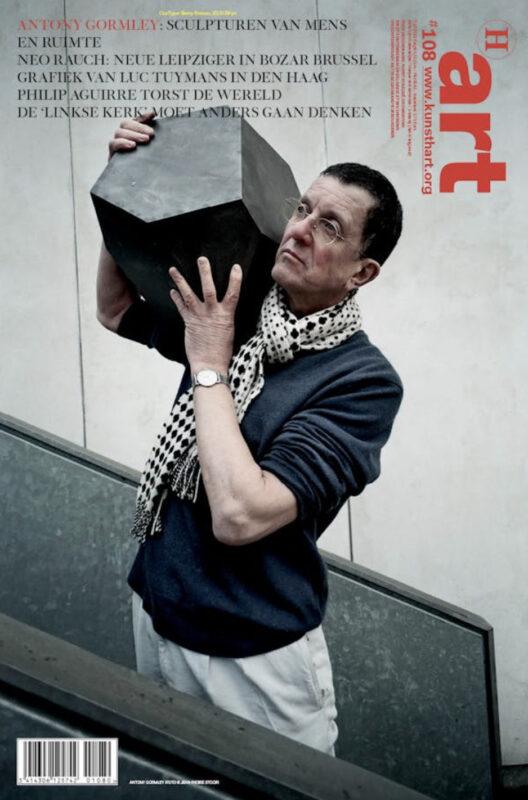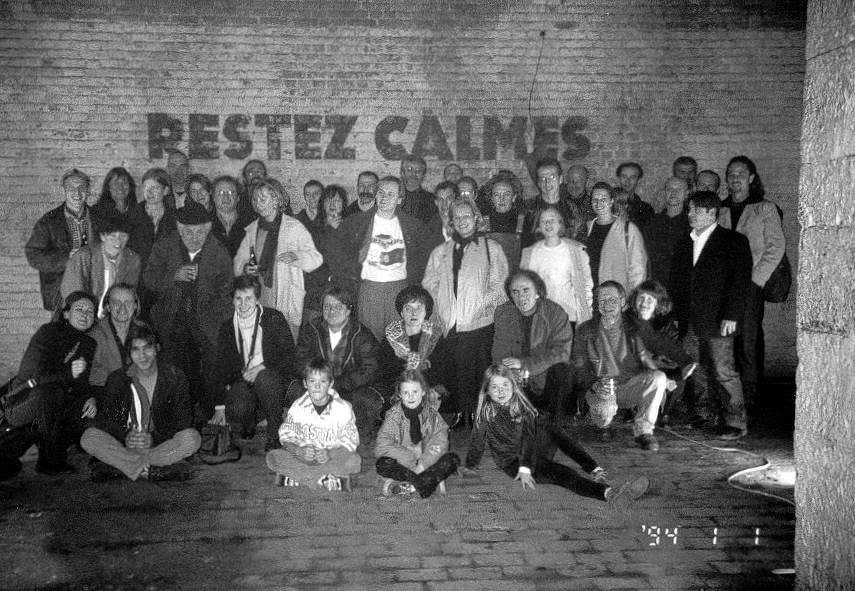NICC introductie | Introduction
Team
Coördinator |Coordinator
Anyuta Wiazemsky Snauwaert
+32 478 66 88 35
Raad van bestuur | Board of directors
Kasper De Vos, Anna Laganovska, Wouter van Loo, William Ludwig Lutgens, Pierre Mertens, Lucia Mrakovcic, Jelle Spruyt, Wouter Van der Hallen, Shanglie Zhou
Externe vertrouwenspersoon | External confidant
Ariadna Estalella Alba
+32 488 061 757 (op woensdag van 9.00-12.00 uur)
Organisatie | Organisation
Mandatenrooster bestuurders | Directors’ term roster
Intern reglement | Internal regulations
Factuurgegevens | Invoice details
NICC vzw
Kleine Markt 7-9
2000 Antwerpen
BE0463. 942. 783
IBAN BE79 7350 4576 9133
EN
Mission & Vision
NICC is an artist-run, non-profit vzw, creating space for interaction between visual artists, institutions and society. NICC operates with specific attention to the socio-economic position of visual artists, and does so within local, regional and international registers.
The core activity of NICC is to promote and critique knowledge about the development of the artistic practice and the framework within which this takes place, and to feed the debate around it. NICC functions as the first contact and representative of visual artists and strives for a strong social framework that enables visual artists to develop their artistic practice professionally and autonomously.
As a counter to monoculture, NICC chooses diversity as the central theme for its 5-year plan (2023-2027). In order to improve the well-being of the visual artist, NICC wants to be a platform where artists can meet and collaborate in their individuality and diversity on an equal footing.
NICC’s history in short
The International Cultural Centre (ICC) in Antwerp was founded in 1970 and was the first public institution for contemporary art in Flanders. During the 70s and early 80s, the organization contributed significantly to the stimulation and dissemination of the Belgian and international avant-garde. The shutting down of the ICC (1998) resulted in the occupation of its building by the group ‘Hit&Run’, which resulted in the establishment of NICC.
From 1998 to 2002 NICC was run by artists such as Luc Tuymans, Guillaume Bijl, and Danny Devos. In addition to an exhibition program, NICC was committed to the advocacy of visual artists.
From 2002 to 2006, NICC focused on social policy. Three new non-profit organisations were founded by people who had previously worked at NICC: Extra City, Objectif Exhibitions, and Air Antwerpen. Indirectly, the BAM and Kunstenloket support centres were also established at the request of NICC.
From 2008 to 2012 NICC was managed by a new group of artists. Despite the limited budget, a rich, public program was developed in Antwerp’s Tulpstraat.
In 2013, NICC moved to Brussels to further develop its supra-local operations and influence. From this location, the NICC Vitrine, a diverse program of artist talks and vitrine presentations was realized with local and international artists such as Dennis Tyfus, Sammy Baloji, Shana Moulton, etc.
Ahead of the 20-year anniversary, NICC returned to Antwerp South in 2017. In 2018, NICC presented two large-scale projects: OPEN STUDIO’S 2018 and 20 YEARS NICC (view the PowerPoint of 20 YEARS NICC here). With OPEN STUDIO’S NICC wanted to focus attention on the need for affordable workspaces and cultural usage of vacant space, from this grew the initiative to bring all Flemish studio organizations together in the UFO platform.
In the summer of 2019, NICC organized a debate in collaboration with De Nor on the sense and nonsense of the artist status for visual artists. At the M HKA, NICC reacted to the policy plan and announced cuts in a visual way with Without Artists No Art (2020). In the summer of 2020, NICC became part of the Artists Coalition.
During the period of 2018-2021, NICC also maintained a constant conversation with advice and critiques to the Cabinet and the administration of the Department of Culture. NICC also spent 1.5 years as a partner in establishing the correct pay framework “right is right” and the federal holistic reform of the socioeconomic status of the Artist, Working in the Arts (WITA).
Anno 2023, NICC continues to question the realization of the above-mentioned trajectories in daily practice and wants to know how we can continue to stimulate dialogue between governments, support structures, and interest groups in order to strengthen the position of the artist in a sustainable way.
